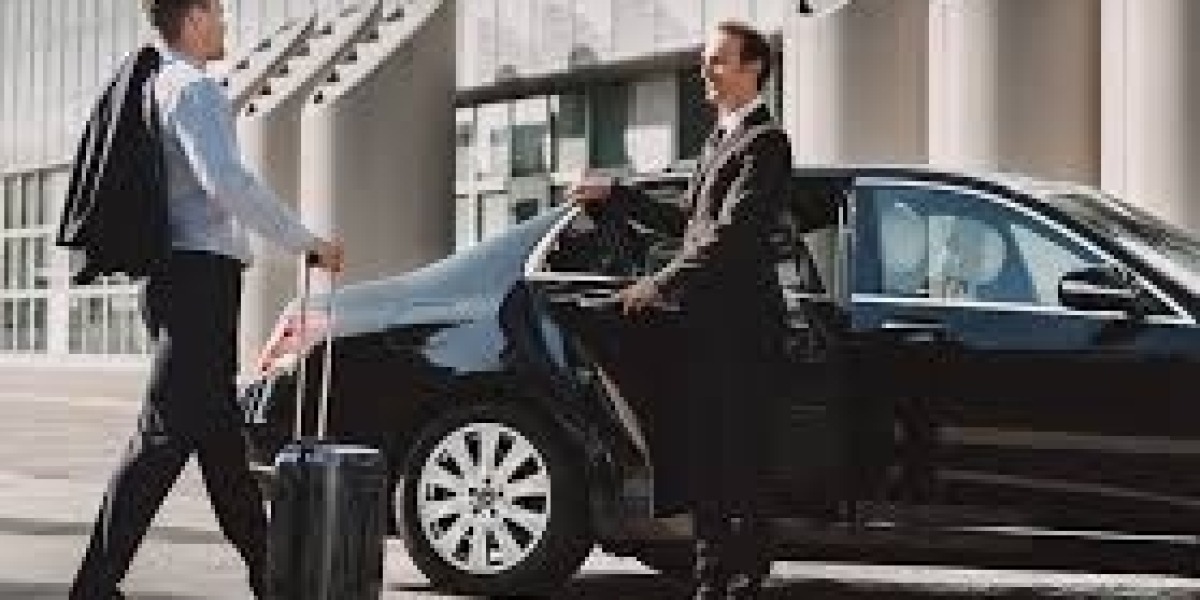Chauffeur service in New York offers a sophisticated transportation solution tailored to the fast-paced lifestyle of the city's residents, visitors, and businesses. With its iconic skyline, bustling streets, and diverse neighborhoods, New York demands reliable, efficient, and luxurious mobility options that go beyond standard taxis or ride-shares. Chauffeur services here typically involve professional drivers operating high-end vehicles, providing door-to-door transport for everything from executive commutes to tourist explorations. The emphasis is on personalization, with chauffeurs trained in local navigation, etiquette, and handling the unique challenges of urban traffic. Whether for airport transfers at JFK or LGA, corporate meetings in Manhattan, or evening outings in Brooklyn, these services ensure a seamless experience, blending comfort with the city's vibrant energy. As a cornerstone of New York's transportation ecosystem, chauffeur services cater to those who value discretion, punctuality, and a touch of elegance in their travels.
History of Chauffeur Services in New York
The history of chauffeur services in New York traces back to the early 20th century, when the city's rapid urbanization and the advent of automobiles created a need for skilled drivers. Initially, chauffeurs served wealthy families and industrial magnates navigating the expanding metropolis, often operating custom-built vehicles through the horse-drawn carriage era's transition. By the 1920s and 1930s, with the rise of skyscrapers and corporate headquarters, professional chauffeur companies emerged to support business elites and celebrities frequenting venues like Broadway theaters. The post-World War II boom accelerated growth, as international travel increased and airports like Idlewild (now JFK) became hubs, necessitating reliable ground transport. Technological shifts in the late 20th century, including radios and early GPS, modernized operations, while the 21st century brought digital booking platforms. Today, New York's chauffeur services reflect a legacy of adaptation, from handling the 1960s' traffic congestion to embracing eco-friendly fleets, maintaining a reputation for professionalism amid the city's dynamic evolution.
Types of Chauffeur Services in New York
Chauffeur services in New York are diverse, catering to the multifaceted needs of a cosmopolitan population. Executive services dominate, offering sedans or SUVs for business professionals commuting between Wall Street, Midtown, and the boroughs, often equipped with Wi-Fi and workspaces. Airport transfers are a staple, providing punctual pickups from Manhattan to JFK, LGA, or Newark, with options for meet-and-greet at terminals. Event-specific services handle weddings, galas, or concerts, coordinating fleets for group arrivals at venues like Carnegie Hall or Central Park. Luxury variants include stretch limousines for VIP experiences, while private jet ground services manage seamless connections to Teterboro or Westchester airports. Specialized offerings encompass medical transports for non-emergency hospital runs or secure services for high-profile clients navigating the city's security-conscious environment. Vehicle choices range from compact sedans for solo travelers to spacious vans for families, ensuring adaptability to New York's varied terrain and schedules.
Benefits of Using Chauffeur Service in New York
Utilizing chauffeur service in New York provides numerous advantages that address the city's unique transportation challenges. Foremost is the convenience of navigating congested streets and complex traffic patterns, with experienced drivers familiar with shortcuts and alternate routes to avoid delays. Safety is enhanced through trained chauffeurs who prioritize defensive driving in a high-density environment, reducing risks associated with self-driving. Comfort comes from premium vehicles with climate control and amenities, allowing passengers to relax during long commutes or work on the go. For tourists, it offers insider knowledge of the city, including recommendations for routes or stops. Businesses benefit from productivity gains, as chauffeurs handle logistics like parking in scarce spots. Additionally, the service promotes discretion for confidential meetings or private outings. Overall, it elevates the New York experience by minimizing stress and maximizing efficiency in a city that never sleeps.
How to Choose the Right Chauffeur Service in New York
Selecting the appropriate chauffeur service in New York involves careful consideration to match the service with the city's demands and personal preferences. Research begins with evaluating company reputations through local reviews, affiliations with organizations like the New York Limousine Association, and compliance with state regulations. Fleet quality is vital; inspect vehicle models for suitability to New York's urban landscape, including features like GPS for real-time navigation. Licensing and insurance must be verified, ensuring coverage for passengers and adherence to New York Department of Motor Vehicles standards. Pricing should be transparent, with quotes for hourly rates, flat fees for common routes, and any surcharges for peak times. Technological integration helps—look for apps with booking, tracking, and customer support. Driver qualifications matter too; opt for services with background-checked, uniformed chauffeurs trained in local protocols. A consultation or trial ride can confirm compatibility and reliability in the bustling New York context.
Safety and Security Aspects in New York
Safety and security are paramount in NYC chauffeur services, given the city's high-traffic environment and diverse clientele. Chauffeurs receive specialized training in urban driving, including hazard navigation in areas like Times Square or the Holland Tunnel, and emergency response protocols. Vehicles are equipped with advanced safety features such as dash cams, GPS tracking, and automated braking systems to mitigate risks. Security measures include encrypted booking systems to protect personal data and options for discreet routes for high-profile individuals. Partnerships with local authorities ensure rapid assistance in emergencies, while health standards incorporate sanitization and contactless features. Regular vehicle inspections and compliance with New York State safety regulations reinforce these practices. This comprehensive approach not only addresses the city's unique challenges but also builds trust, making chauffeur services a secure choice for residents and visitors alike.
Cost Factors and Pricing in New York
Pricing for chauffeur services in New York reflects the city's premium location and operational complexities, requiring an understanding of influencing factors for effective budgeting. Rates vary based on vehicle type, trip duration, distance, and time of day, with hourly charges for sedans starting at accessible levels but rising for luxury options or extended services. Flat-rate packages are popular for fixed routes like Manhattan to JFK, including tolls and waiting time for predictability. Additional costs may include gratuities, fuel surcharges, or fees for extras like onboard refreshments. Peak demand during rush hours or holidays can elevate prices, so advance reservations yield savings. To manage expenses, compare quotes from multiple providers and explore discounts for corporate accounts or frequent users. Transparent invoicing details all charges, ensuring clients can balance cost with the convenience of professional transport in one of the world's most expensive cities.
Future Trends in Chauffeur Services in New York
The future of chauffeur services in New York is shaped by innovations that address urban mobility and sustainability challenges. A key trend is the shift toward electric and hybrid vehicles, with fleets adopting zero-emission models to comply with city initiatives like congestion pricing and reduce emissions in a densely populated area. Digital advancements include AI-driven apps for dynamic routing, predictive scheduling, and integration with public transit for multimodal journeys. The sharing economy is expanding through platforms allowing peer-to-peer chauffeur options, increasing accessibility for diverse users. Customization is evolving with smart features like in-car connectivity for streaming services or wellness tools for long rides. As remote work persists, demand for flexible, on-demand services is growing, prompting hybrid models. These trends promise a more efficient, inclusive, and eco-friendly landscape, adapting to New York's evolving needs while preserving the essence of personalized luxury transport.









